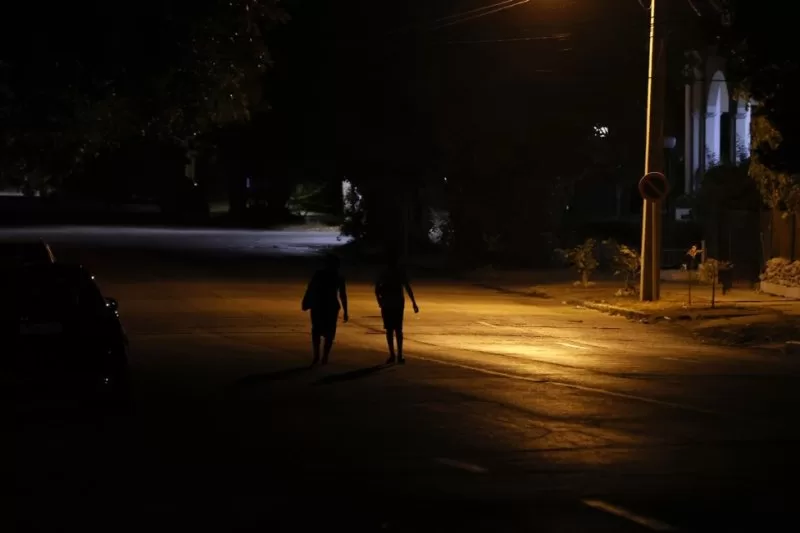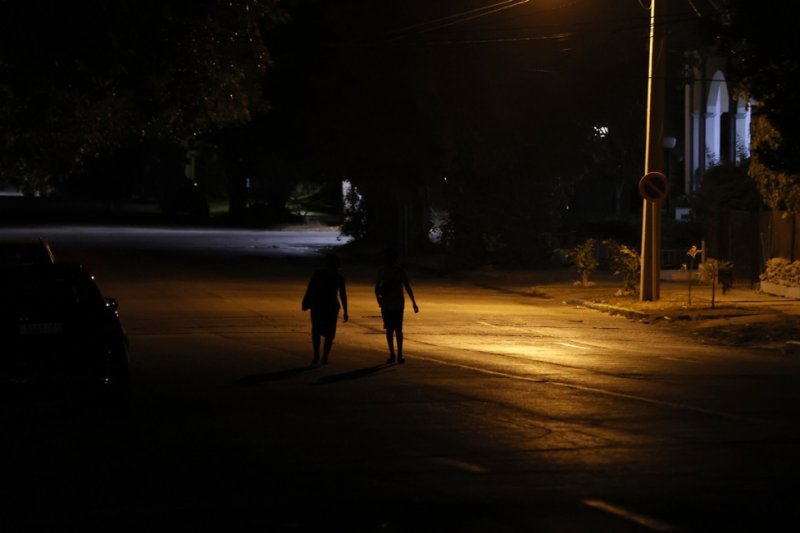People walk along a dimly lit street in Havana, Cuba in May. Power blackouts have prompted concerns about the government’s plan to enhance the electrical system, which failed again over the weekend. Photo by Ernesto Mastrascusa/EPA-EFE
Oct. 20 (UPI) — Millions of Cubans faced a third consecutive day without power as a hurricane loomed over the island nation Sunday.
Sixteen percent of the country had power restored Saturday but attempts to restore it more widely failed overnight, the Cuban Electrical Union reported.
The country’s aging power infrastructure is being blamed. It was overloaded Saturday night and utility officials did not have an update on when service may be restored.
Power was being slowly restored, but the country suffered a second nationwide blackout on Saturday morning, officials said.
The country’s power grid has completely failed three times since Friday and many of Cuba’s 10 million people have been facing interruptions in their service, if not a complete blackout, ever since.
Cuba’s social structure is complicated by the power outages, as the nation’s water supply and means by which it keeps food fresh are dependent on the ailing electric grid.
The power outage is happening against the backdrop of Hurricane Oscar, which is anticipated to make landfall in eastern Cuba later on Sunday, bringing damaging and high surf. It made landfall in the Bahamas early Sunday with sustained winds of 80 mph.
“Weakening is expected after landfall, but Oscar could still be a tropical storm when it moves north of Cuba late Monday and moves across the central Bahamas on Tuesday,” the National Hurricane Center said.
In its 2 pm EDT update, the NHC said Oscar is about 90 miles east-northeast of Guantanamo Bay. A hurricane warning is in effect for the North coast of the Cuban Provinces of Holguin and Guantanamo to Punta Maisi.
Cuban Prime Minister Manuel Marrero Cruz said much of the country’s product production was stopped to avoid leaving people completely without power.
“We have been paralyzing economic activity to generate (power) to the population,” he said in a televised address on Thursday.
The country’s health facilities were running on generators and that health workers continued to provide vital services, the country’s health minister, José Angel Portal Miranda, said in a social media post.

